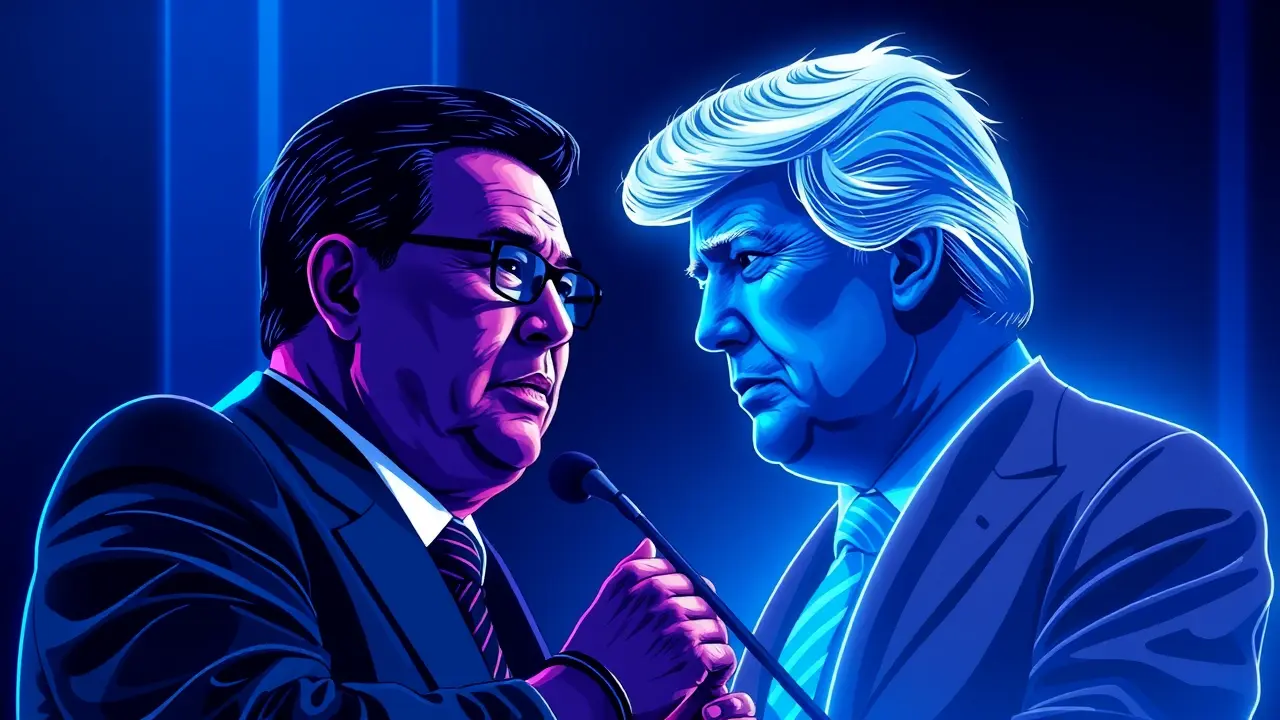
PoliticsdiplomacyInternational Organizations
Colombian President Petro Criticizes Trump at Climate Summit.
AN
Anna Wright
14 hours ago7 min read1 comments
In a striking moment of political theater that laid bare the deepening ideological fissures in global climate diplomacy, Colombian President Gustavo Petro unleashed a blistering critique of former U. S.President Donald Trump during preliminary COP30 discussions, framing the upcoming U. S.election as a pivotal battle for the planet's future. Drawing a stark historical parallel that sent ripples through the diplomatic corps, Petro accused Trump of being 'against mankind' and likened his immigration policies to those of 'the Nazis,' a comparison almost unprecedented in modern inter-state discourse between allied nations.This rhetorical escalation cannot be viewed in isolation; it represents a calculated move by Petro, a former guerrilla fighter turned head of state, to galvanize the Global South by directly confronting the specter of resurgent nationalism that threatens to unravel the fragile consensus of the Paris Agreement. The timing is profoundly strategic, occurring as Trump leads in key polls, signaling to European and Asian partners that some developing nations will not tread softly should the architect of the U.S. withdrawal from the accord return to power.Petro’s condemnation extends beyond mere rhetoric—it is rooted in tangible policy fears, specifically the potential dismantling of the U. S.-Colombia partnership on Amazon conservation and the JETP (Just Energy Transition Partnership) model, which relies heavily on American financial and technological backing. His speech wove together themes of climate justice, historical memory, and human rights, arguing that a leader who builds walls both physical and ideological is inherently incompatible with the collective action required to avert ecological catastrophe.This positions Petro not merely as a national leader but as a moral voice for a bloc of nations disproportionately bearing the climate burden, echoing the feminist foreign policy principle that security is multidimensional, encompassing environmental and migrant rights. The immediate consequence is a likely chilling of backchannel communications between Bogotá and the Republican establishment, potentially complicating bipartisan support for Colombian aid packages in Congress.Furthermore, it sets a confrontational tone for COP30, suggesting that the era of polite, lowest-common-denominator climate declarations may be over, replaced by a more fractious and polarized negotiation landscape where historical analogies become weapons. Analysts will be watching whether other Latin American leaders, such as Brazil’s Lula da Silva, follow suit or seek to maintain a more diplomatic bridge to a possible Trump administration, highlighting the delicate dance between principle and pragmatism in international relations. Ultimately, Petro’s gambit is a high-stakes wager that shaming a powerful figure on the world stage can mobilize his domestic base and international allies, but it risks alienating a crucial partner at a moment when unity—however uneasy—is our planet's most稀缺 commodity.
#Colombia
#Gustavo Petro
#Donald Trump
#COP30
#climate summit
#diplomacy
#featured
Stay Informed. Act Smarter.
Get weekly highlights, major headlines, and expert insights — then put your knowledge to work in our live prediction markets.
Related News
© 2025 Outpoll Service LTD. All rights reserved.














